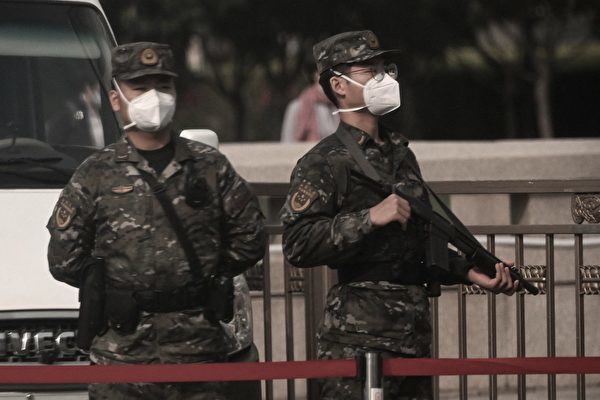Taiwan/Flag of the Republic of China. On January 11, 2023, at a military base in Kaohsiung, Taiwan's armed forces conducted a two-day routine exercise. (Annabelle Chih/Getty Images)
[People News] Taiwan’s National Security Bureau (NSB) stated on Monday (January 13) that China’s state security apparatus is utilizing multiple channels and methods, including collusion with gangs, establishing shell companies, and exploiting unscrupulous partners, to obtain intelligence on Taiwan’s national defense and sensitive government information. This has led to a significant increase in the number of people arrested and prosecuted for espionage-related charges in recent years.
According to a report by Voice of America, Taiwan’s NSB released a report titled Analysis of CCP Espionage Tactics on Monday, which highlighted that in 2023, 48 people were prosecuted for espionage, a figure that rose to 64 in 2024. Compared to 2021 and 2022, these numbers represent a sharp increase. Espionage cases also surged from three in 2021 and five in 2022 to 14 in 2023 and 15 in 2024.
The report emphasized that both active-duty and retired military personnel in Taiwan have become prime targets for recruitment by Beijing. In 2024, 15 retired military personnel were prosecuted for espionage, accounting for 23% of all prosecutions, while 28 active-duty personnel were prosecuted, representing 43%.
“Active and retired military personnel have become key targets for the CCP’s infiltration efforts in Taiwan,” the NSB report stated.
The National Security Bureau pointed out that an analysis of espionage cases involving Beijing in 2024 reveals five main channels of CCP infiltration in Taiwan: gang organizations, underground banking networks, shell companies, religious groups, and civilian associations. Additionally, Beijing employs four primary methods of infiltration: recruiting active-duty soldiers through retired military personnel, online connections, monetary inducements, and coercion through debt.
"(The CCP) comprehensively infiltrates Taiwan’s military units, government agencies, and pro-China organizations in an attempt to obtain sensitive national defense information, develop espionage networks within Taiwan, and even interfere in democratic elections," the NSB report stated.
The report revealed alarming accusations, including Beijing colluding with gangs in Taiwan to develop armed internal agents. This includes recruiting gang members to raise the Chinese national flag (“Five-Star Red Flag”) during a potential military invasion of Taiwan and coordinating sabotage operations. Beijing has also allegedly enlisted gang members to recruit retired military personnel to form “sniper squads,” planning attacks on Taiwan’s military facilities and foreign institutions on the island.
According to Taiwan’s Central News Agency, the NSB further accused Beijing of exploiting retired Taiwanese military personnel to establish shell companies, underground banks, and casinos. These operations were used to persuade or coerce active-duty soldiers into collecting military secrets, signing loyalty oaths to the CCP, or defecting to China with military helicopters. Beijing has also allegedly provided funding to religious organizations in Taiwan, using religious activities as a pretext to contact active-duty soldiers, lure them into wearing military uniforms while holding Chinese flags, and filming “pledges of allegiance” videos or handing over documents detailing defense plans.
The report reiterated past allegations that Beijing invites Taiwanese local leaders on sponsored trips to mainland China during election periods to campaign for specific candidates. It also spreads disinformation through social media platforms to influence election outcomes.
With the rise of social media, Beijing is also reportedly using platforms like Facebook, Line, and LinkedIn to offer online loans to Taiwanese active and retired military personnel. These loans are allegedly tied to demands for sensitive information as repayment, or as a means to recruit their military colleagues. Payments for such operations are reportedly made via cryptocurrency to evade detection.
In response to the threat of foreign infiltration, the NSB stated that Taiwan’s national security, military counterintelligence, and judicial investigation agencies have established a collaborative mechanism to create a “national security threat map” and fully support the investigation of espionage cases. The report noted that recent breakthroughs in espionage cases involving Beijing have been aided by tips from military personnel and civilians, reflecting a significant increase in public awareness of counterintelligence.











News magazine bootstrap themes!
I like this themes, fast loading and look profesional
Thank you Carlos!
You're welcome!
Please support me with give positive rating!
Yes Sure!